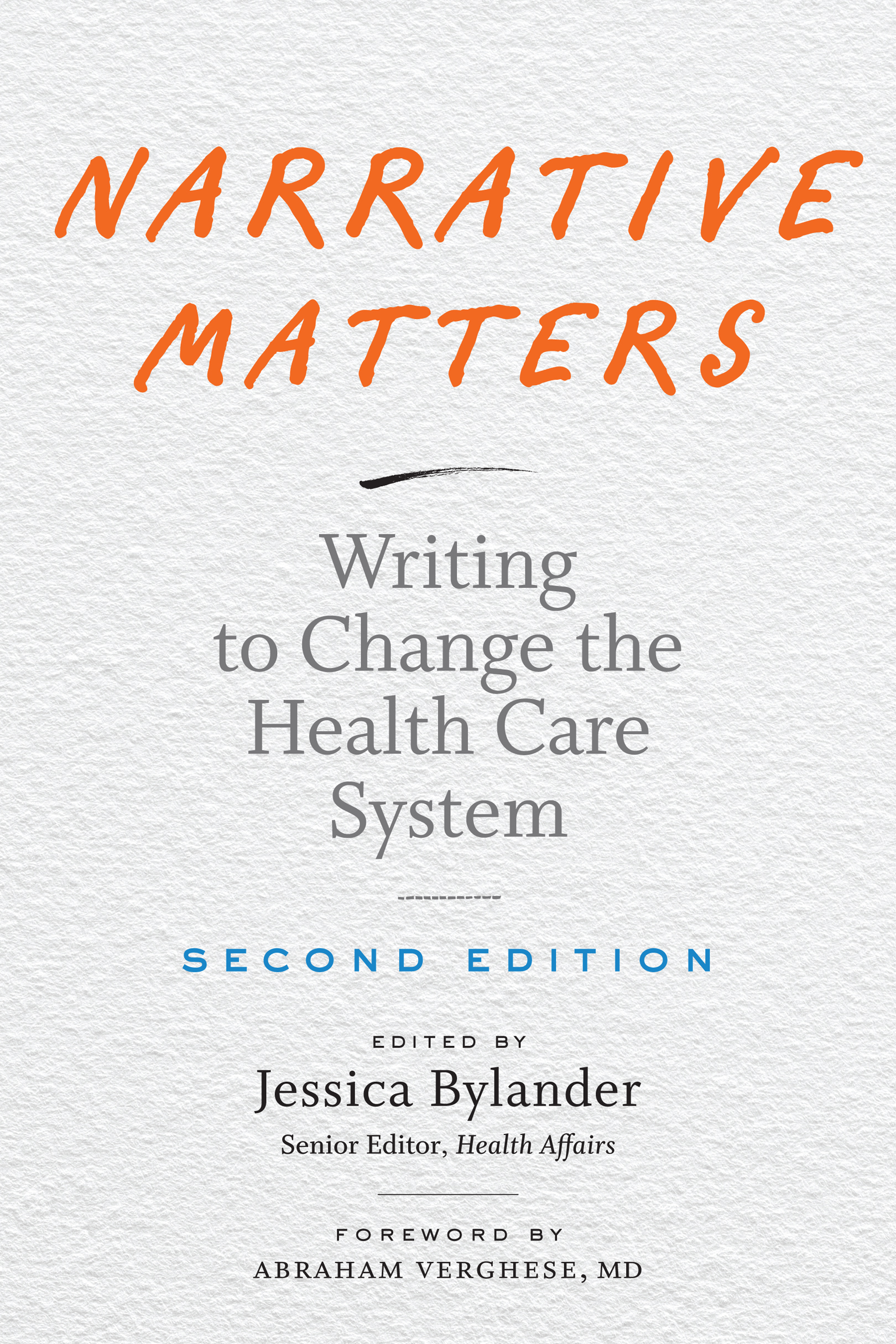Jessica Bylander - Narrative Matters: Writing to Change the Health Care System
Here you can read online Jessica Bylander - Narrative Matters: Writing to Change the Health Care System full text of the book (entire story) in english for free. Download pdf and epub, get meaning, cover and reviews about this ebook. year: 2020, publisher: Johns Hopkins University Press, genre: Home and family. Description of the work, (preface) as well as reviews are available. Best literature library LitArk.com created for fans of good reading and offers a wide selection of genres:
Romance novel
Science fiction
Adventure
Detective
Science
History
Home and family
Prose
Art
Politics
Computer
Non-fiction
Religion
Business
Children
Humor
Choose a favorite category and find really read worthwhile books. Enjoy immersion in the world of imagination, feel the emotions of the characters or learn something new for yourself, make an fascinating discovery.

- Book:Narrative Matters: Writing to Change the Health Care System
- Author:
- Publisher:Johns Hopkins University Press
- Genre:
- Year:2020
- Rating:5 / 5
- Favourites:Add to favourites
- Your mark:
Narrative Matters: Writing to Change the Health Care System: summary, description and annotation
We offer to read an annotation, description, summary or preface (depends on what the author of the book "Narrative Matters: Writing to Change the Health Care System" wrote himself). If you haven't found the necessary information about the book — write in the comments, we will try to find it.
Drawn from the popular Narrative Matters column in the journal Health Affairs, these essays embody a vision for a health care system that centers the humanity of patients and doctors alike.
Health care decision making affects patients and families first and foremost, yet their perspectives are not always factored into health policy deliberations and discussions. In this anthology, Jessica Bylander brings together the personal stories of the patients, physicians, caregivers, policy makers, and others whose writings add much-needed human context to health care decision making.
Drawn from the popular Narrative Matters column in the leading health policy journal Health Affairs, this collection features essays by some of the leading minds in health care today, including Pulitzer Prizewinner Siddhartha Mukherjee, MacArthur fellow Diane Meier, former Planned Parenthood president Leana S. Wen, and former secretary of health and human services Louis W. Sullivan. The collection also presents important stories from lesser-known voices, including a transgender doctor in Oklahoma who calls for better treatment of trans patients and a palliative care physician who reflects on how perspectives on hastening death have changed in recent years. A foreword written by National Humanities Medal recipient Abraham Verghese, MD, further rounds out the book.
The collection of thirty-two essays is organized around several themes:
the practice of medicine
medical innovation and research
patient-centered care
the doctor-patient relationship
disparities and discrimination
aging and end-of-life care
maternity and childbirth
opioids and substance abuse
Contributors: Louise Aronson, Laura Arrowsmith, Cheryl Bettigole, Cindy Brach, Gary Epstein-Lubow, Jonathan Friedlaender, Patricia Gabow, Katti Gray, Yasmin Sokkar Harker, Timothy Hoff, Carla Keirns, Raya Elfadel Kheirbek, Katy B. Kozhimannil, Pooja Lagisetty, Maria Maldonado, Maureen A. Mavrinac, Diane E. Meier, Dina Keller Moss, Siddhartha Mukherjee, Donna Jackson Nakazawa, Travis N. Rieder, Aroonsiri Sangarlangkarn, Elaine Schattner, Janice Lynch Schuster, Myrick C. Shinall, Gayathri Subramanian, Louis W. Sullivan, Gautham K. Suresh, Abraham Verghese, Otis Warren, Leana S. Wen, Charlotte Yeh
Jessica Bylander: author's other books
Who wrote Narrative Matters: Writing to Change the Health Care System? Find out the surname, the name of the author of the book and a list of all author's works by series.





